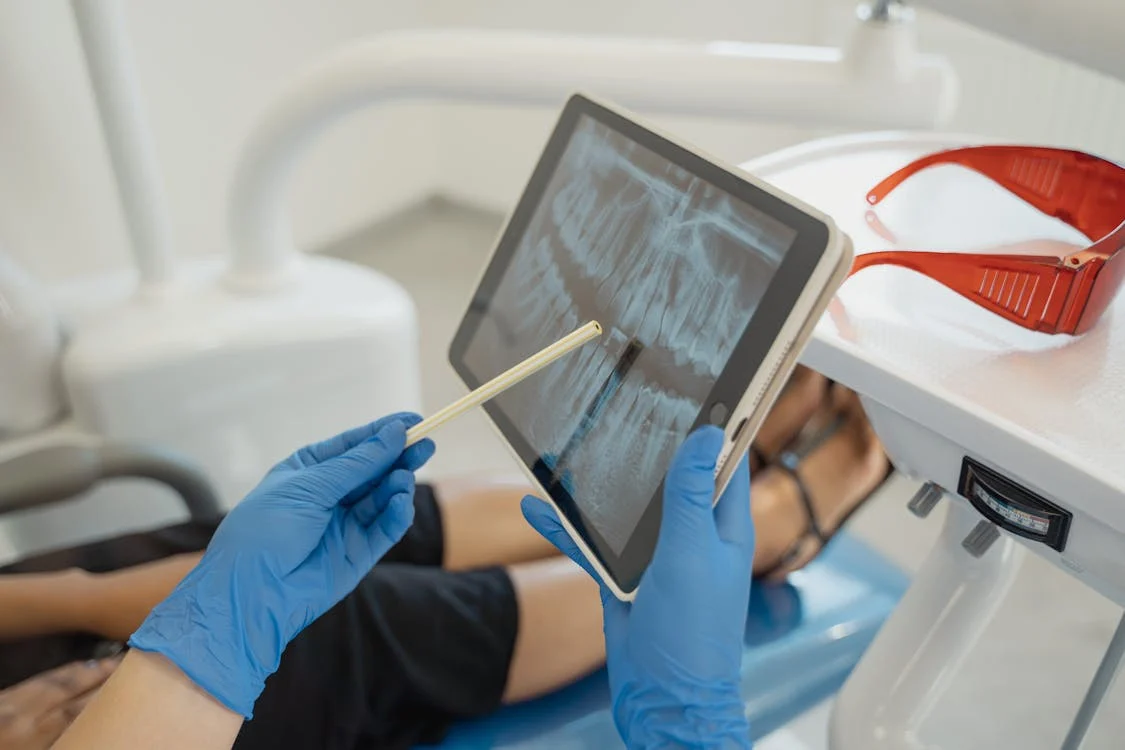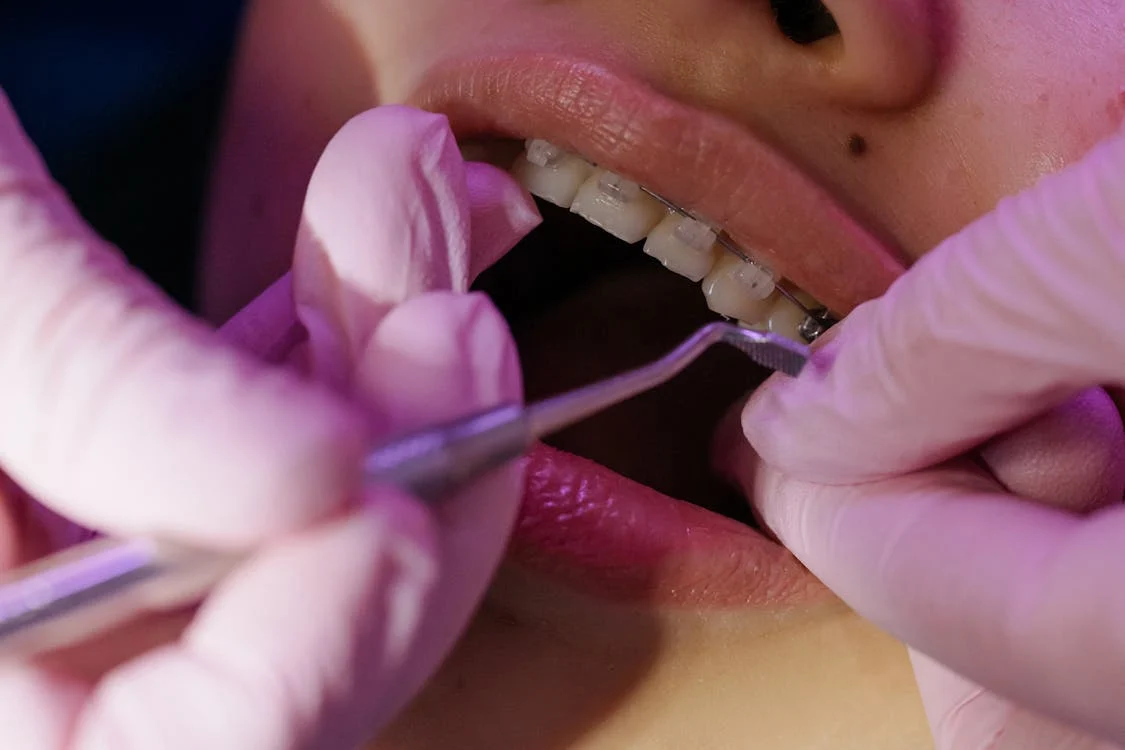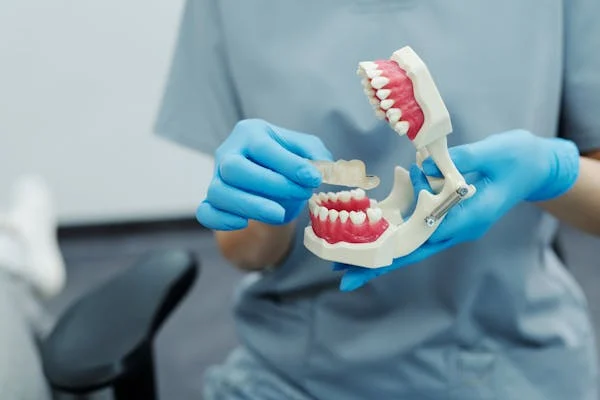What to Expect from a Dental Crown Procedure
- Admin
- Sep 3, 2024
- 4 min read
Undergoing a dental crown procedure can be daunting, especially if you are unfamiliar with what to expect. However, knowing the steps involved from start to finish can help ease any anxiety and prepare you for the process. This blog will walk you through the entire procedure, from the initial consultation and tooth preparation to the final fitting and aftercare. Understanding each phase lets you approach your treatment with confidence and peace of mind.
Initial Consultation and Examination
The first step in getting a dental cap is an initial visit or consultation with an expert in cosmetic dentistry. During this visit, the dentist will thoroughly examine your teeth and gums to determine if a dental cap is the best solution for your dental issue. This examination may include taking X-rays to assess the condition of the tooth’s roots and surrounding bone.
If you are a suitable candidate for a dental cap, the dentist will discuss the types available, such as metal, porcelain-fused-to-metal, all-ceramic, and all-resin crowns. Each type has its advantages and considerations, and your dentist will help you choose the one that best meets your needs and aesthetic preferences. This consultation with dentist in Queenstown is also an opportunity to ask questions about the procedure, costs, and what to expect during and after the treatment.
Tooth Preparation
Once you and your dentist have decided on the type of dental cap, the next step is preparing the tooth. This involves removing any decay and shaping the tooth to accommodate the crown. The amount of tooth structure removed depends on the type of crown being placed. For example, all-metal crowns require less tooth removal than all-ceramic or porcelain-fused-to-metal crowns.
After reshaping the tooth, the dentist will take an impression of the tooth and the surrounding teeth. This impression is crucial in cosmetic dentistry as it will be used to create a model for the custom dental cap. To ensure accuracy, your dentist may use digital scanning technology or traditional putty impressions. Once the impression is taken, a temporary crown is placed over the prepared tooth to protect it while the permanent crown is being made.
Creating the Dental Cap
The creation of your dental cap is a meticulous process that takes place in a dental laboratory. Using the impression taken by your dentist, the lab technicians will craft a custom crown that fits perfectly over your prepared tooth and matches the colour and shape of your natural teeth. Depending on the cosmetic dentistry laboratory, this process can take anywhere from a few days to a couple of weeks.
It is important to take care of your temporary crown during this waiting period. Avoid sticky or hard foods that can dislodge or damage the temporary crown and maintain good oral hygiene to prevent complications. If your temporary crown becomes loose or falls out, contact your dentist immediately to have it reattached or replaced.
Fitting and Cementing the Crown
Once your custom dental cap is ready, you will return to your dentist for the fitting and cementing process. The dentist will remove the temporary crown and clean the prepared tooth thoroughly. Your dentist in Queenstown places the permanent crown over the tooth and check the fit and colour match. It is essential that the crown fits snugly and aligns properly with your bite to ensure comfort and functionality.
After confirming the fit, the dentist will use a special dental cement to bond the crown to the tooth permanently. This cement hardens quickly, securing the crown in place. The dentist will make any necessary adjustments to the crown's shape and ensure your bite feels natural. Once the crown is in place, you will receive instructions on caring for your new dental crown.
Aftercare and Maintenance
Proper aftercare is crucial to the longevity and success of your dental cap. Your dentist will provide specific instructions on maintaining good oral hygiene and protecting your crown from damage. This includes brushing your teeth twice daily with fluoride toothpaste, flossing daily, and using an antibacterial mouthwash to keep your gums healthy.
It is also important to avoid habits that can damage the crown, such as chewing on ice, biting your nails, or using your teeth to open packages. Regular dental check-ups are essential to monitor the condition of your dental cap and address any issues early on. Your dentist in Queenstown may recommend a night guard if you grind your teeth at night, as this can prevent undue stress on the crown.
Common Issues and Solutions
While dental caps are durable and designed to last many years, they are not immune to problems. Common issues include sensitivity, crown loosening, and damage to the crown. Sensitivity may occur if the tooth's nerves are affected during preparation. This usually subsides after a few days, but if it persists, your dentist may recommend desensitising toothpaste or additional treatments.
If your crown becomes loose or falls out, contact your dentist in Queenstown immediately. Do not attempt to re-cement the crown yourself, as this can lead to improper placement and further complications. Damaged crowns, such as those with chips or cracks, can often be repaired by your dentist, but in some cases, a new crown may be necessary.
The Benefits of Dental Caps: Final Thoughts and Long-Term Care
Understanding the dental cap procedure from start to finish can help alleviate any fears or uncertainties about the treatment. From the initial consultation with your dentist to the final fitting and aftercare, each step is designed by cosmetic dentistry to restore your tooth's function and appearance while ensuring your comfort and satisfaction.
By following your dentist’s instructions and maintaining good oral hygiene, you can enjoy the benefits of your dental cap for many years. Whether you need a crown for restorative purposes or as part of dentistry, the results can be transformative, enhancing both your oral health and your smile.
Ready to Restore Your Smile?
If you're considering a dental cap or have questions about dentistry, our experienced team at Queenstown Dental is here to help. Don't wait to restore your tooth's function and enhance your smile. Call us on +64 (0)3 442 7274 or email info@queenstowndentist.co.nz to schedule your dental crown consultation. Your journey to a healthier, more beautiful smile begins with a single step.








Comentarios